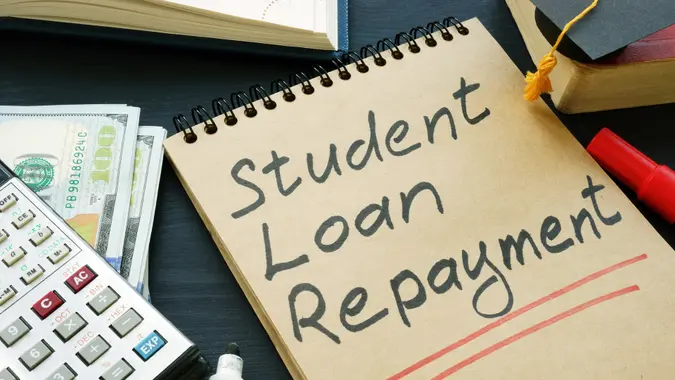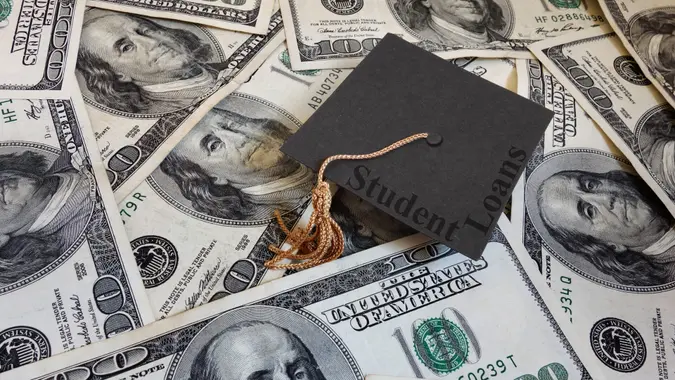Student Loans: Which Income-Based Repayment Plans Will Be Phased Out Under Biden’s REPAYE Program?

Commitment to Our Readers
GOBankingRates' editorial team is committed to bringing you unbiased reviews and information. We use data-driven methodologies to evaluate financial products and services - our reviews and ratings are not influenced by advertisers. You can read more about our editorial guidelines and our products and services review methodology.

20 Years
Helping You Live Richer

Reviewed
by Experts

Trusted by
Millions of Readers
On Jan. 10, the Biden Administration proposed new regulations to reduce federal student loan payments, especially for lower income and middle-income borrowers. The Revised Pay As You Earn (REPAYE) plan offers $0 monthly payments for individual borrowers making less than roughly $30,600 annually, or borrowers in a family (of four) earning less than roughly $62,400.
In a press release, the Department of Education called it “the most affordable income-driven repayment (IDR) plan that has ever been made available to student loan borrowers.”
Under the new REPAYE program, other income-based loan repayment plans are set to be phased out. These plans are:
- Income Contingent Repayment (ICR)
- Income Based Repayment (IBR)
- Pay As You Earn (PAYE)
- Revised Pay As You Earn (REPAYE)
Note: The new plan replaces the existing Revised Pay As You Earn plan, but borrowers with ICR, IBR, and PAYE plans will now adopt the new plan.
The previous plans all work in essentially the same way, according to Forbes, with payments tied to the borrower’s income. Payments are recalculated annually and — depending on the plan — balances can be forgiven after 20 or 25 years.
Under the new REPAYE plan, borrowers would qualify for loan forgiveness in as little as 10 years, and no more than 20 years for undergraduate loans. Graduate loans have the same 25-year timeline for forgiveness as they do under the current legislation.
The proposed REPAYE legislation would also allow borrowers to qualify for Public Service Loan Forgiveness (PSLF) in as little as 10 years if they work in nonprofit or certain government organizations.
The proposed REPAYE plan will vastly simplify student loan repayment while also reducing payments for many borrowers. According to the Department of Education, PAYE and ICR plans will be phased out, and the legislation will limit circumvents where borrowers can switch to an IBR.
 Written by
Written by  Edited by
Edited by 

























